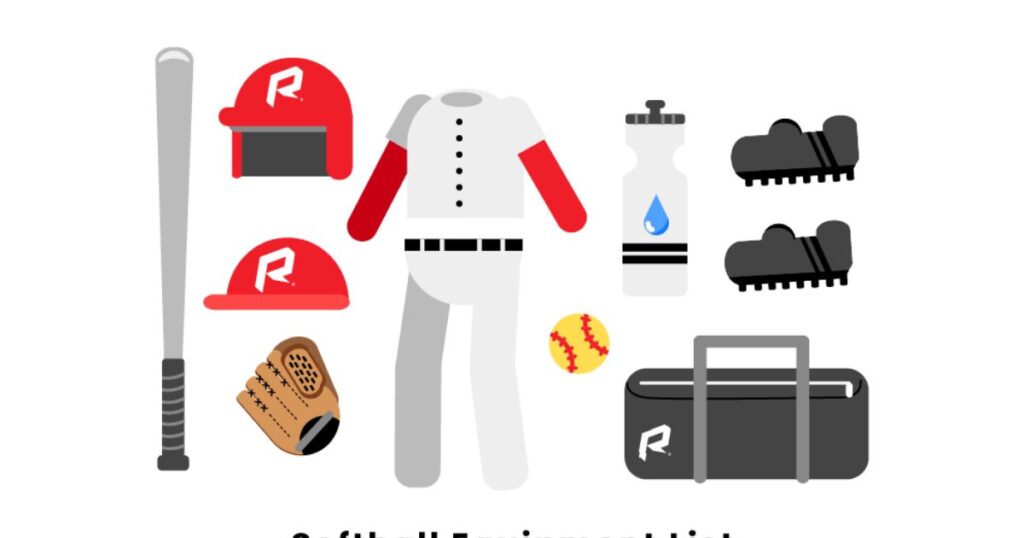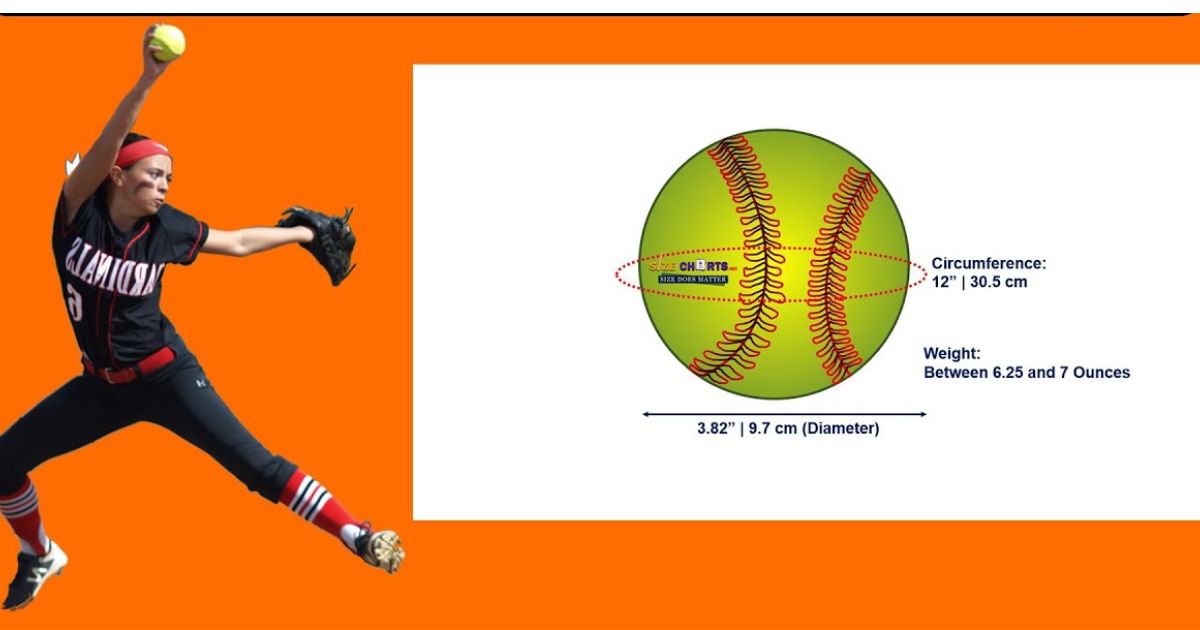When it comes to youth softball, the size of the ball is a critical aspect that can affect the game’s dynamics and safety. In the 12U category, players are transitioning to a more competitive level of play, and the choice of softball size is an important consideration.
Are you curious about the secret behind 12U softball success? Discover why 11-inch softballs are the game-changer for young athletes and how it boosts their skills and safety. Join us on this exciting journey through the world of youth softball.
This article will guide you through the specifics of what size softball 12U players use, the reasons behind this choice, and how it impacts the players’ development and performance.It’s time to explore the dynamics of the game and ensure your young athlete’s softball experience is a home run.keep reading
The Basics of 12U Softball
In the world of youth softball, players are categorized by age to ensure fair competition and skill development. The term “12U” stands for “12 and under,” which means the players in this category are typically between the ages of 10 and 12. This is an important stage in a young athlete’s softball journey, as it marks the transition from recreational to more competitive play.
The Softball Size for 12U Players
In the 12U category, the standard softball size used is the 11-inch ball. This size is specifically designed to suit the physical capabilities and skill level of players in this age group. The 11-inch softball is slightly smaller than the 12-inch one used in higher age groups and adult leagues.
Why Do 12U Players Use 11-Inch Softballs?
The choice of an 11-inch softball for 12U players is not arbitrary but based on several important factors, including the softball size for 8U. Understanding why this size is used can provide insights into the development and safety of young athletes.
Age-Appropriate Equipment

Youth sports, including softball, prioritize age-appropriate equipment to ensure that young athletes can safely and effectively participate in the sport. An 11-inch softball is better suited to the physical abilities of 12U players. It allows them to handle the ball with more confidence, which is crucial for skill development.
Pitching Considerations
The size of the softball directly affects pitching. In 12U softball, players are typically introduced to more complex pitching techniques, such as fast pitching and change-ups. The 11-inch ball is easier to grip and control, making it ideal for developing these pitching skills.
Hitting and Fielding Skills
Smaller softballs are generally easier to hit and catch, which is important for players who are still honing their batting and fielding abilities. The 11-inch softball allows 12U players to build their confidence as hitters and fielders.
Reduced Risk of Injury
Safety is a top priority in youth sports. The 11-inch softball is less likely to cause injury compared to larger balls, especially when young pitchers are still refining their control. It minimizes the risk of getting hit by high-speed pitches.
Comparing 11-Inch and 12-Inch Softballs
To fully understand why 12U players use 11-inch softballs, let’s compare them to the larger 12-inch softballs commonly used in higher age groups and adult leagues.here is a table comparing 11-inch and 12-inch softballs:
| Aspect | 11-Inch Softball | 12-Inch Softball |
| Size and Weight | Smaller and Lighter | Larger and Heavier |
| Pitching | Easier to Grip and Control | Requires More Strength |
| Hitting and Fielding | More Forgiving | Can Be More Challenging |
| Transition to Higher Levels | Helps with Adaptation | Aligns with Advanced Play |
This table summarizes the key differences between 11-inch and 12-inch softballs, focusing on size, weight, and their impact on various aspects of the game.
The Role of Softball Size in Skill Development
The choice of softball size for 12U players is not just a matter of convenience or tradition. It plays a crucial role in the development of fundamental skills that will serve as the foundation for a player’s softball journey. Let’s explore how the 11-inch softball size contributes to skill development in various aspects of the game.
Hitting
Hitting is one of the most exciting aspects of softball. The 11-inch softball is an ideal size for 12U players learning to make contact with the ball. It offers a larger sweet spot and is more forgiving when players are still refining their swing mechanics. This builds confidence and encourages players to take more swings, which is essential for improving their hitting skills.
Fielding
Fielding in softball involves catching and throwing the ball accurately. The 11-inch softball is easier to catch, especially for young players who are still developing their hand-eye coordination. It allows them to build confidence as fielders without the intimidation of a larger ball.
Pitching
Pitching is a complex skill that requires precision and control. Young pitchers in the 12U category are typically learning the fundamentals of fastpitch and various pitching techniques. The 11-inch softball is more manageable for them, as it allows a better grip and control. This size enables pitchers to focus on their mechanics and accuracy without struggling with the weight and size of the ball.
Base Running
Base running is a critical aspect of softball that relies on speed and agility. The 11-inch softball is easier to manage when stealing bases or advancing on hits. It allows players to develop their base-running skills, such as reading the ball off the bat and making quick decisions on the basepaths.
Confidence Building
Perhaps one of the most important aspects of using an 11-inch softball for 12U players is the boost in confidence it provides. Young athletes need to feel successful in their early years of playing softball.
The 11-inch softball’s age-appropriate size and weight make it easier for players to achieve success in various aspects of the game. This positive reinforcement is essential for keeping players engaged and motivated to continue their softball journey.
The Importance of Safety
Safety should always be a top priority in youth sports. Using the right equipment, including the appropriate softball size, is crucial in ensuring the well-being of young athletes. Here’s why the 11-inch softball contributes to a safer playing environment for 12U players.
Young pitchers are still developing their control and accuracy. Using a smaller, lighter ball minimizes the risk of injury from wild pitches. The 11-inch softball is easier to manage, making it less likely to cause harm if it accidentally hits a batter or fielder.
Catching and fielding can be challenging for young players. The 11-inch softball is more forgiving and easier to catch, reducing the likelihood of errors and missed catches. This not only enhances safety but also helps maintain the flow of the game.
Transitioning to Higher Levels
As players grow older, they develop more strength and refined skills. They become capable of handling the larger 12-inch softball, which requires a bit more power and control in pitching, hitting, and fielding. The transition prepares them for the demands of higher-level play.
At higher levels of play, pitching becomes faster and more challenging. Switching to the 12-inch softball allows players to adapt to the increased speed and movement of pitches, which is crucial for success in competitive softball.
Youth softball organizations often align their rules and equipment standards with those of higher-level leagues and adult play. This transition ensures that players are familiar with the equipment they will use as they progress in their softball careers.
FAQs
Why do 12U softball players use 11-inch softballs?
12U players use 11-inch softballs because they are age-appropriate and easier to handle, promoting skill development and safety.
What’s the difference between 11-inch and 12-inch softballs in youth softball?
The main difference is the size and weight, with 11-inch softballs being smaller and lighter, making them more suitable for younger players.
When do 12U players transition to 12-inch softballs?
12U players transition to 12-inch softballs as they grow older and develop the strength and skills required for higher-level play, typically in higher age categories.
Conclusion
The selection of softball size for 12U players is a nicely-considered decision that takes under consideration the gamers’ age, improvement, and safety. Using an eleven-inch softball inside the 12U category isn’t arbitrary however based totally on sound principles of talent development and harm prevention.
It offers younger athletes with a platform to build their confidence, hone their capabilities, and put together for the transition to higher tiers of play. As 12U gamers progress in their softball journey, they will eventually transfer to the larger 12-inch softball, marking another essential milestone of their development as softball players.








